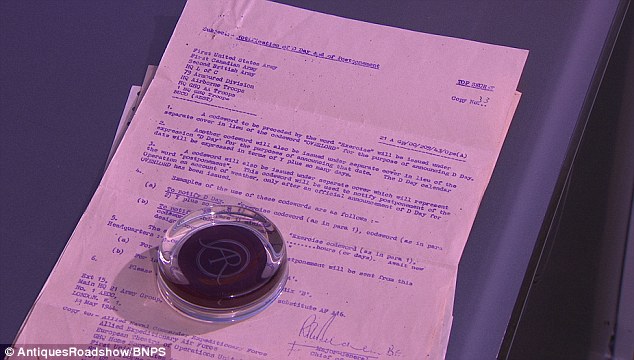A British Army officer who worked in Field Marshall Montgomery’s office has been found to have kept numerous top secret documents from World War II. One document in particular outlines the change of names for the D-Day offensive due to suspicions of the plan being compromised by the Germans.
The documents were discovered in 1999 by Paul Wheeler, the son of Sam Wheeler a British Army officer during World War II, as he was clearing his parents’ home after they passed away.
Now, experts have analysed the documents and have confirmed that they are originals, of which copies may still exist in the national archives. However, never to this day has it been known that just weeks before D-Day, the mission’s code names were changed due to suspected infiltration by German intelligence.
The documents detail how officers in the British Army were ordered three weeks before the D-Day invasion to stop using the code names of D-Day and Overlord. Instead they were told to use Halcyon and Hornpipe respectively. A new code for delay was also established, known as Ripcord, if they needed to delay the invasion by 24 hours.
The document exists as an urgent memo dated May 19, 1944 and it is thought they were put into practice immediately, however when the D-Day invasion actually took place and was a success, everyone diverted back to the original code names, the Mail Online reports.
Suspicions that the Germans had knowledge of the planned invasion began when some of the code words began to appear in newspaper crosswords.
No records published since World War II have ever mentioned the adjusted code names for one of the biggest and greatest war time invasions.
The code names had been in use for around a year when the change took place.
Sam Wheeler had joined the British Army at the beginning of the war. He eventually joined the 21st Army Group where he was based in London at the Army’s headquarters. Sam was part of the team responsible for D-Day planning.
His son took them along to a military historian visiting his local town. The expert, Paul Atterbury, was amazed at the find and suggested that the interpretations of D-Day planning now took a new turn because of the security breach fears that were previously unknown until now.
